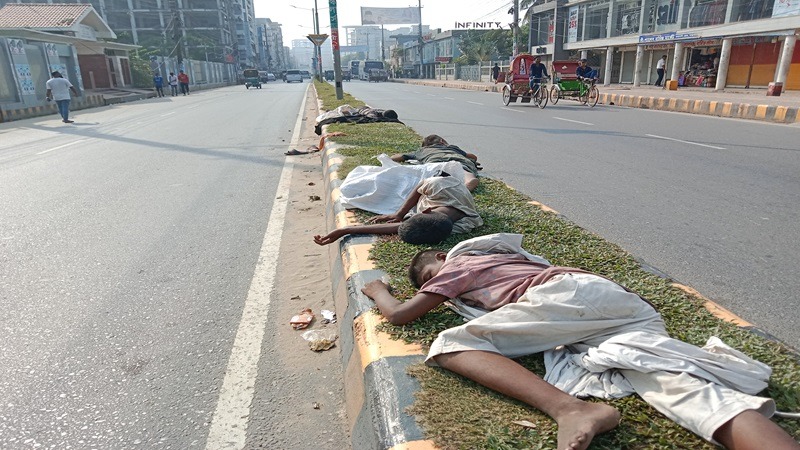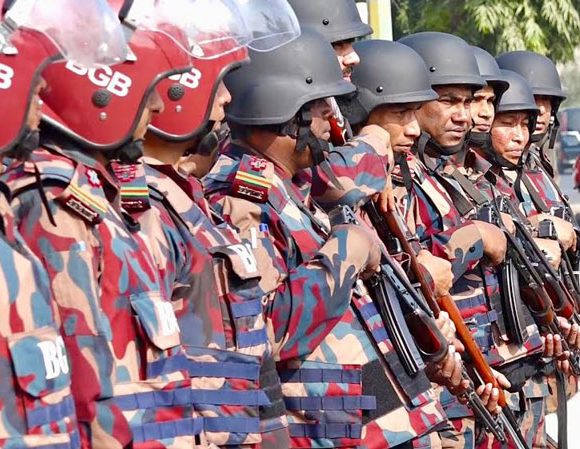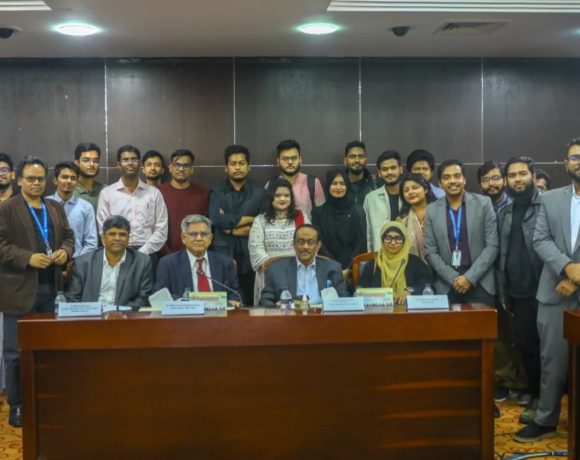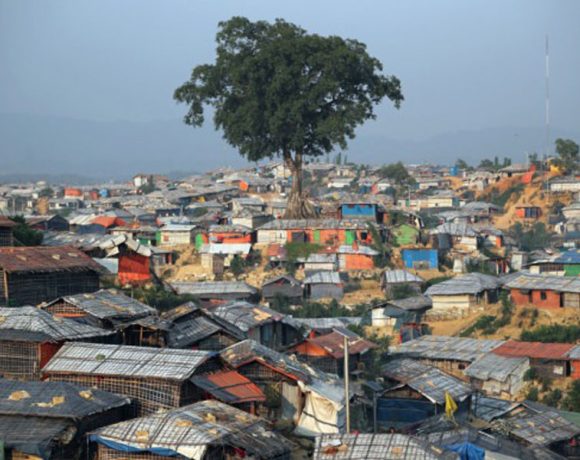Rohingya children’s perilous journey to the streets

COX’S BAZAR CORRESPONDENT
In the heart of Cox’s Bazar, a city renowned for its stunning coastal beauty, a heart-wrenching story unfolds as Rohingya children, seeking refuge from the dire conditions of refugee camps, embark on a treacherous path by joining the ranks of street children. This narrative delves into their struggles and the uncertain future they face.
In the Sugandha Point area of Cox’s Bazar, where the tourist police box stands, a group of 10-12 street children gathers, sharing their stories of survival. Among them, seven raise their hands in a simple yet poignant confession – they are Rohingya children.
Karim Ullah, a 12-year-old using a pseudonym for safety, shares his journey. Two years ago, he made a daring escape from the Ukhia Rohingya camp, evading checkpoints with the help of a friend, and found his way to the city. Initially, life on the streets was harsh, but he adapted. He earned his keep by collecting plastic bottles and selling them at local shops, day and night. After a brief job as a glassboy in a city tea shop, he was dismissed for going to play during working hours. Karim Ullah returned to the streets, enduring a life filled with uncertainty, neglect, and hardship. However, his family contacted him in the meantime. Initially, they were worried, but now things have normalized. He informed the family that he works in a tea shop, but, in reality, he has become a street child.
Another Rohingya child, known by the pseudonym Mohammad Abdullah, bears physical scars – burns on his left wrist and bent fingers – a result of an accident involving an electric wire six months ago. He escaped the Balukhali camp a year and a half ago.
When asked how these children manage to evade checkpoints, they reveal the secret: they must dress, talk, and act like the locals. If caught, they face a return to the camps, but hope persists.
Abdul Alim, another young Rohingya, shares his experience. An older Rohingya who worked at Nazirartek in the city initially welcomed him but later cast him out, providing only one meal a day. As a result, Abdul Alim joined the underprivileged children of the city. He’s endured hardships, including a robbery that left him with a stab wound on his hand and back. Despite the difficulties, he and others like him find solace in their newfound freedom, as opportunities to collect scraps in the refugee camps are scarce.
These three street children are not alone in their struggles. According to the ‘New Life’ organization, which advocates for underprivileged children in Cox’s Bazar, approximately one-third of the city’s street children are Rohingya. They face daily risks, including food insecurity, lack of shelter, sickness, and accidents.
Suman Sharma, the general secretary of New Life Organization, reveals the grim reality that more than 250 underprivileged children reside in Cox’s Bazar, with roughly 100 being of Rohingya descent. These children live uncertain lives, spending their nights on footpaths, market balconies, and in abandoned shops. They sustain themselves by collecting scraps and begging, often falling victim to exploitation by dealers who pay them less than what they deserve. Illness, accidents, and attacks are daily challenges for these vulnerable children.
Jasmine Akhtar, Deputy Project Director of Cox’s Bazar Sheikh Russell Child Training and Rehabilitation Center, highlights the absence of a rule to accommodate Rohingya children in rehabilitation centers, despite efforts by various organizations to provide shelter for street children. Returning Rohingya children to the camps remains an unsolved issue, necessitating a permanent solution for their safety.
Tragically, the story of Rohingya children reached a grim climax on February 5, 2021, when a 10-year-old street child named Lalu, of Rohingya origin, was electrocuted while attempting to retrieve a tourist’s lost mobile phone from a drain at Sugandha Point.
Authorities and organizations grapple with the challenge of ensuring the safety and well-being of these children. Vibhishan Kanti Das, Additional Deputy Commissioner of Cox’s Bazar, emphasizes the need to strengthen the security of Rohingya camps and find and return the children who have ventured out to the streets. A collective effort to protect all children, regardless of their backgrounds, is essential.
In light of these pressing issues, Refugee Relief and Repatriation Commissioner Mohammad Mizanur Rahman underscores the importance of repatriation as a long-term solution to the Rohingya crisis. The Bangladeshi government is actively working to ensure a dignified and sustainable repatriation process for the Rohingya population, addressing the broader challenges faced by these displaced communities.














